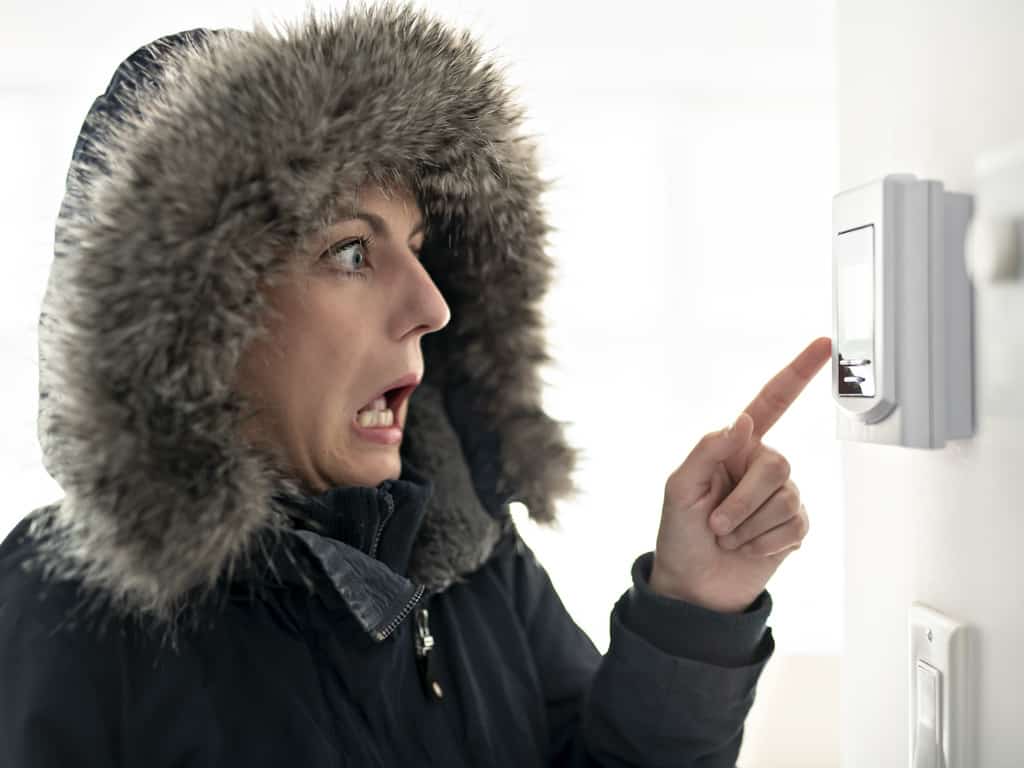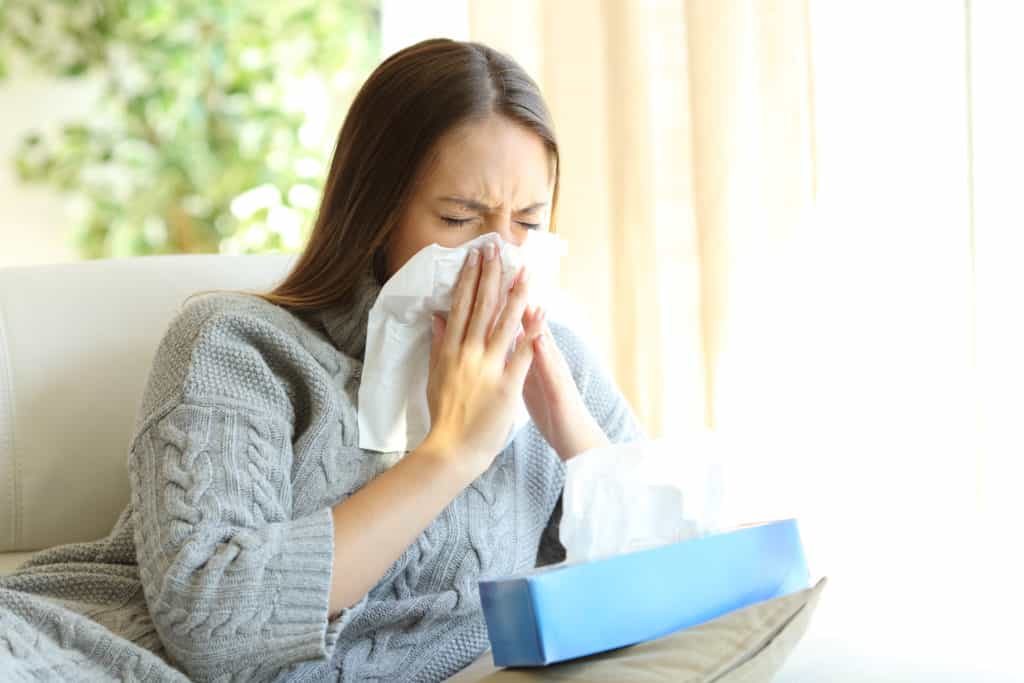Winter air and desert air are both very dry. In many cases too dry. And, the best way to combat overly dry air in your home is with the help of a humidifier.
A humidifier brings relative humidity back into balance, but many people don’t know why that balance is so important. That’s why we tracked down the top benefits of a humidifier.
Turns out that getting the relative humidity right is almost as important as finding the right air purifier.
1. Viruses love dry air.

An increase in humidity inhibits the transmission of certain viruses and bacteria. Not a huge increase either. A recent study found that an increase to 43 percent relative humidity greatly reduces influenza’s ability to move through the air. And, those results aren’t limited to just the flu… 70-80 percent of viruses are transmitted through the air. That means a simple cough will introduce a wide variety of nasty viruses into the air you’re breathing. The right amount of humidity makes it harder for them to reach you.
2. Reduce your heating bill

Dry air increases your heating bill. Dry air also “feels” colder. Without going into too much detail humid air “holds” warmth better than dry air. So, when the air is too dry your heating system will expend more energy trying to warm things up. More energy means a higher bill at the end of the month.
The inverse is also true. Overly humid air demands a lot from your air conditioning. That’s where dehumidifiers come into play, but we’ll leave that discussion for another post.
3. Fewer Nosebleeds and Easier to Bear Cold and Flu Season

Dry air leads to nosebleeds. As do fingers. But, a humidifier can’t help with the latter. People with a sensitivity to dry air frequently praise humidifiers for helping stave off nosebleeds.
If you have a cold or flu humid air will also make sore throats, stuffy noses, and coughing more bearable. Some say that less irritation leads to a faster recovery, but we’re happy just to know humid air soothes a sore throat.
4. Better sleep
So a humidifier isn’t a cure for insomnia. But, it will help with a handful of other things that get in the way of a good night’s sleep. For example, when humidity drops your significant other might snore more. Higher humidity tends to soothe your throat and sinuses which seems to reduce the frequency and severity of snoring.
Properly humidified air is also more comfortable which should get you to a deep slumber faster and keep you there longer. Too humid and everything feels damp and hot. Too dry and the room feels colder and harsh on your sensitive airways.
5. Happier, Healthier Wood Trim and Furnishings
Dry air damages wood trim, doors, moldings, and furniture. As moisture moves from any piece of wood you will begin to see a change in shape and perhaps even some unwanted cracks. For example, during the winter months, relative humidity drops and wood doors can warp or shrink. Which changes the way they close or misaligns latches and hinges. If the relative humidity drops you may also see wood floors creak and squeak as the planks shrink. Fortunately, they’ll A humidifier can help preserve the balance of moisture in both the wood and the air, maintaining your pieces for years to come.
The good news is that as humidity equalizes wood will typically correct itself. The bad news is that a crack in a cherished piece of furniture is permanent. A humidifier can help preserve the balance of moisture in both the wood and the air. And, that is cheap insurance for your favorite pieces and family heirlooms.
Humidifier Tips…
A humidifier is a great addition to almost any household. Beyond what we mentioned above they help reduce static electricity, promote healthier… softer skin, and may even help with seasonal allergies or asthma. But, too much humidity can cause a lot of problems. So can a purifier that isn’t properly maintained.
To help you get the most out of your purifier we thought we’d offer some tips to help you get the most out of your new appliance.
1. Use distilled water
We know it’s more of a pain than just filling the humidifier reservoir from the tap. But, many if not most tap water contains minerals that will collect in your humidifier. Over time they’ll kill your appliance. Distilled water is fairly cheap insurance (about $1 per gallon at your local grocery store) and there are even in home distillers available. Bottom line… if you want your humidifier to last don’t fill it with tap water.
2. Monitor humidity levels in your home
Excessive humidity can promote mold growth and a host of other issues in your house or apartment. Hygrometer-equipped electronic thermometers are affordable and easy to come by. They’re a great tool that helps you keep everything in check. You’ll want to keep relative humidity between 40 and 50 percent.
3. Keep it clean.
We left water in a test humidifier for a little over a week (on accident). By the time we noticed our mistake something already started growing in the reservoir. It wasn’t green or overly disturbing. But, it was enough to teach us a lesson. Keep your humidifier clean and empty before storing.
Anything that grows in there could be atomized next time you fire up your machine. It might just smell strange, but it could also be mold or bacteria.
Most are pretty easy to clean before you put it away. And, if you’re using it for extended periods a cleaning once a week should be sufficient.